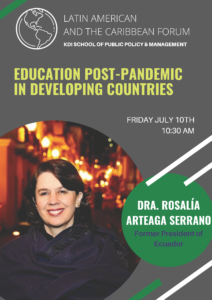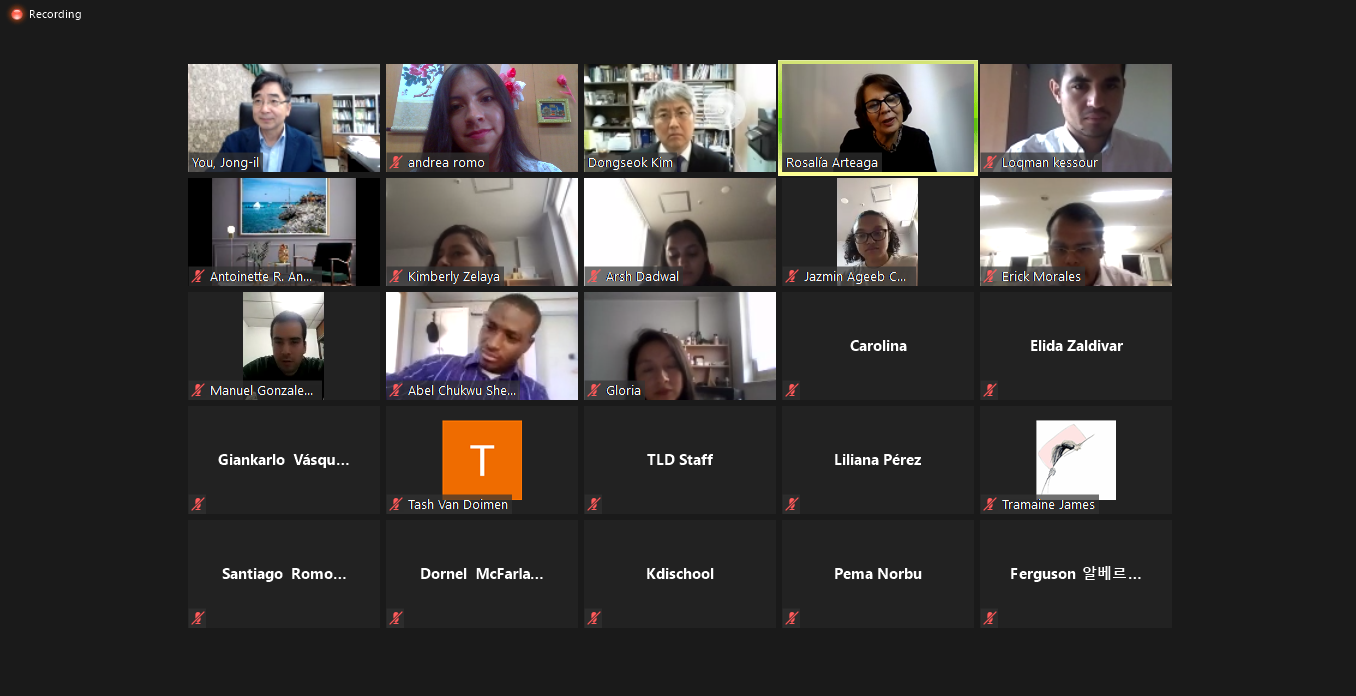
Education Post-Pandemic in Developing Countries
- Date 2020-08-12 07:26
- CategoryNews
- Hit3301
The COVID-19 pandemic struck the world in late 2019 and is still on a rampage in many countries today. First and foremost, this pandemic is a public health crisis and emergency which has also greatly impacted many other sectors and facets of human life, up to, and including education. Policymakers and stakeholders have reached a quandary – whether to close schools, which would reduce physical contact and save lives – or keep schools open, which would allow work to continue in order to sustain the global economy. Ultimately, many countries have decided to close their schools. To date, to maintain social distancing, schools in approximately 146 countries have shut their doors. Education is transitioning to teaching via online platforms on an unparalleled and experimental scale. Even when this pandemic ends, its disruption will have changed the dynamics of education, especially in developing countries, many of which were already experiencing serious learning crises. Therefore, it is essential for policymakers to consider post-pandemic education in developing countries.
 Against this background, on July 10, 2020, the Latin American and the Caribbean Forum of KDI School organized and invited Dra. Rosalia Arteaga Serrano to a one-hour Zoom event to discuss and provide policy insight on post-pandemic education in developing countries. The event commenced with a welcome statement from the Dean Jong-Il You began by expressing his deep thanks and congratulations to the Latin American and Caribbean forum for organizing the event and not succumbing to the coronavirus. He further, and most essentially, expressed his gratitude to Dra. Arteaga for opening her schedule, despite her very busy schedule, to engage and educate students and future policymakers of KDI School. He then articulated his anticipation on hearing her perspective on education amid this pandemic.
Against this background, on July 10, 2020, the Latin American and the Caribbean Forum of KDI School organized and invited Dra. Rosalia Arteaga Serrano to a one-hour Zoom event to discuss and provide policy insight on post-pandemic education in developing countries. The event commenced with a welcome statement from the Dean Jong-Il You began by expressing his deep thanks and congratulations to the Latin American and Caribbean forum for organizing the event and not succumbing to the coronavirus. He further, and most essentially, expressed his gratitude to Dra. Arteaga for opening her schedule, despite her very busy schedule, to engage and educate students and future policymakers of KDI School. He then articulated his anticipation on hearing her perspective on education amid this pandemic.
Immediately thereafter, with much excitement and honor, KDI School Professor Dongseok Kim, who is also an advisor to the forum, introduced Dra. Arteaga as the speaker. Dra. Arteaga is the first female Vice President, who was later elected as the first female President of Ecuador. Prior to her ascension as President, she worked in the Ecuadorian government as the Vice President of Culture and Minister of Education. She currently serves with two organizations: she is the CEO of FIDAL Foundation and the President of the Advisory Council of the CoFuturo Foundation. Both organizations are dedicated to revolutionizing the field of education via technological and methodological innovations.
Dra. Arteaga began her deliberation by recounting memories from her visits to Korea. She recalled her delight at the kindness and beauty of the country when she visited Seoul. She then directed her discussion towards the improvement in the quality of post-pandemic education, lamenting the economic and health situations of Ecuador while expressing her conviction in the resilience and capacity of her people. Admitting that Latin American countries lack experience in online education, she also acknowledged the difficulties teachers face in providing instructions through online platforms. As it is now the new normal, Dra. Arteaga specified that many teachers must attend trainings in order to learn how to conveniently use remote platforms as a mode of instruction. She cited difficulty in maintaining the attention of students, connectivity fluctuations, the lack of access to computers and appropriate electronic devices to students in rural areas, and e-learning unpreparedness as key challenges of using remote platforms to teach.

To address some of these challenges, Dra. Arteaga cited the example of Chile and suggested the use of mixed tools, including radio and TV, as additional means of instruction. She shared her experience and good results from experimenting with other platforms, asserting that the attention of kids and young people can also be best maintained by utilizing various platforms including social media applications (e.g., Messenger and WhatsApp) to share instructional materials. She further added that finding such opportunities for improvement and growth during this crisis is a key challenge for governments and policymakers. The key highlight of her presentation; however, was for education to not only be inclusive, but also accessible.
The event ended with a question and answer session which allowed students to have interactive discussion with the speaker. Key points struck during this session included:
- The obvious and potential limitation of instructing through online platforms, especially for disciplines that required a more practical approach. Regarding this, Dra. Arteaga highlighted that post-pandemic; she foresees remote education mixed with the pre-pandemic conventional means of education. As such, stronger social networks can be built since there are very minimal chances of functions returning to what is considered “normal.”
- Policy measures that can adopted to facilitate the training of teachers, especially in developing countries with limited budget allocations. Dra. Arteaga indicated that without adequate budgetary support towards teacher training and salaries, very little transformation can be achieved. Citing a study from UNESCO which indicated that about 25 percent of a school’s success depends on the principal of the school, she recognized that while students are essential, the protagonists of a good education system are the teachers, without whom there can be little or no human capital development. While every country is different, she stressed the importance of making a commitment to invest in education. Buttressing her comments, Dean Jong-Il You alluded to the example of Korea and its early efforts to invest in education.

The session ended with closing remarks from Dean Jong-Il You. He thanked Dra. Arteaga for her wonderful ideas and insightful perspective and for her willingness to share them with KDI School students. He acknowledged the daunting challenges the world is facing and highlighted that overcoming these challenges begins with education. He then expressed his conviction that students will overcome any and all difficulties associated with this pandemic and effect real change for the better.

Related News
-
Research and Education7 days ago
Republic of Korea Economic Bulletin, May 2024#KDI #Economic #KDISCHOOL #kdischool #Economic Bulletin #Research
-
Research and Education35 days ago
Republic of Korea Economic Bulletin, April 2024#KDI #Economic #KDISCHOOL #kdischool #Economic Bulletin #Research
-
Research and Education63 days ago
Republic of Korea Economic Bulletin, March 2024#KDI #Economic #KDISCHOOL #kdischool #Economic Bulletin #Research
